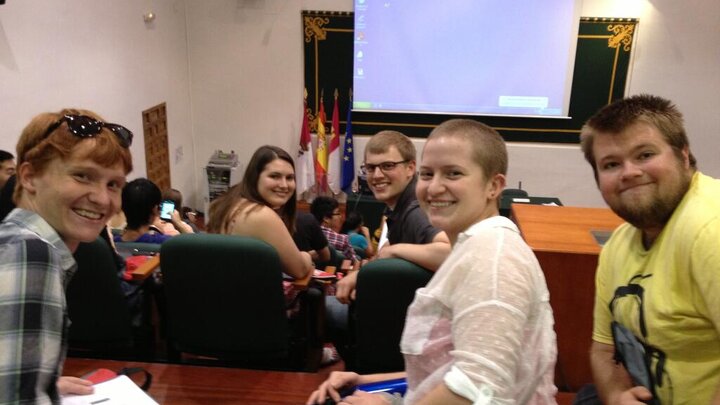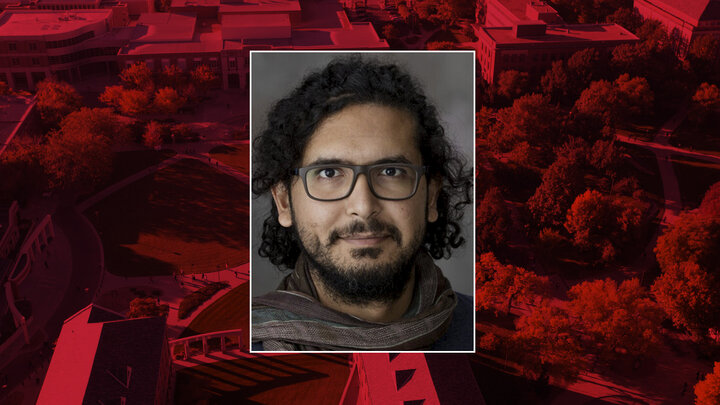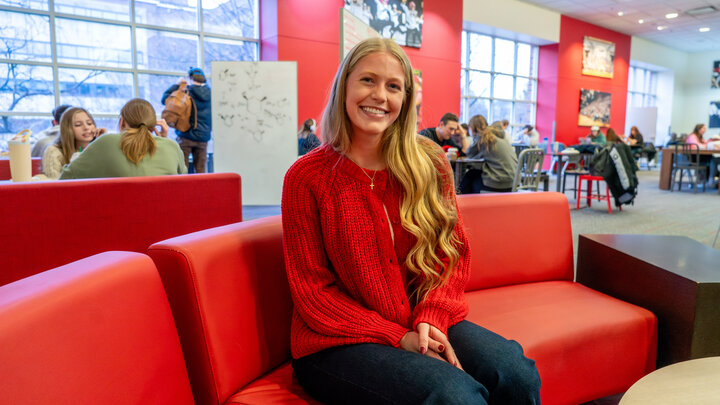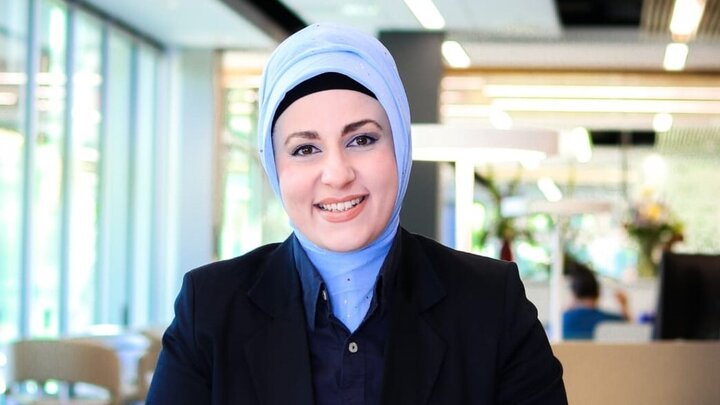A grant from the Office of Global Strategies and the Office of Education Abroad led to the development of an innovative new course called “Becoming American: How Identities are Created and Re-Created.” A collaboration between the Department of Modern Languages and Literatures and the University Honors Program, it asks students to reflect on how people “become American”. The course is collaborative and interdisciplinary, with instructors drawing on the fields of political science, cultural studies, linguistics, history, sociology, and community planning.
Using Lincoln and Nebraska as case studies, the class explores the struggles faced by new arrivals to Nebraska, in the past and the present; the ongoing challenges associated with multiculturalism in Lincoln today; and the opportunities that exist for Lincoln to make lasting change through tangible projects and thoughtful long-term planning.
The course is collaborative and interdisciplinary, with instructors drawing on the fields of political science, cultural studies, linguistics, history, sociology, and community planning. The course is being taught for the first time this fall, and involves modules taught by three different instructors in addition to one core course leader. “I so enjoyed thinking about the issue of identify transformation and becoming American through the lens of political science and international relations while also trying to connect these issues to our local refugee and immigrant communities”, said Dr. Patrice McMahon, Director of the University Honors Program, Dean’s Professor of Teaching and Learning, and Professor of Political Science.
So far, students have enjoyed food from a local Vietnamese restaurant, participated in field experiences in the topics of food, history, and modernity, and have perused historical documents of new arrivals to Nebraska from University Special collections. Later in the semester, students will welcome guest speaker are looking forward to a visit by Dr. Mary Pipher (author of The Middle of Everywhere) later in the semester. In their signature projects, students will interact with first-generation immigrants to Lincoln.




